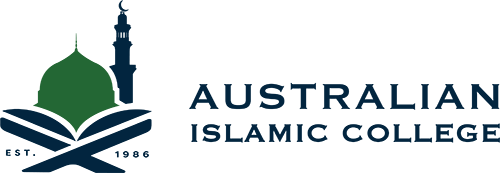14 December 2021
Literacy
Sharp Reading
Sharp Reading is a teaching and learning framework that provides direction for students and equips them to be SHARP (efficient, cutting edge) in their understanding of reading. Sharp Reading allows students to THINK while reading in order to unpack and understand text. This has been our daily morning routine since Term 1 with our Year 3 students.
Narrative Writing
Narrative writing allows students to discuss how language is used to describe the settings in texts, and explore how the settings shape the events and influence the mood of a narrative. Students also drew connections between personal experiences and the worlds of texts, and share responses with others through narrative writing.
Reading Comprehension
The students used comprehension strategies to build literal and inferred meaning and began to evaluate texts by drawing on a growing knowledge of context, text structures and language features.
Grammar
The students learned a range of grammar concepts like: verbs represent different processes; for example doing, thinking, saying, and relating and that these processes are anchored in time through tenses.
Spelling
Year 3 students have been focusing on ‘Spelling Mastery’ from Term 2. It is six-level Direct Instruction series that teaches students dependable spelling skills by blending three approaches: the phonemic approach, the whole approach and the morphemic approach.
Numeracy
Number and Algebra
The students have count to and from 10,000. They have classified numbers as either odd or even. Students have recalled addition and multiplication facts for single-digit numbers. They have recognised the connection between addition and subtraction and solve problems using efficient strategies for multiplication. Students have modelled and represented unit fractions. They have represented money values in various ways. Students have correctly counted out change from financial transactions. They have continued presenting number patterns involving addition and subtraction.
Measurement and Geometry
Students have identified symmetry in the environment. They have matched positions on maps with given information. Students have recognised angles in real situations. They have interpreted and compared data displays. Students have used metric units for length, mass and capacity. They can tell time to the nearest minute. Students made models of three-dimensional objects.
Statistics and Probability
Students have conducted chance experiments and listed possible outcomes. They have conducted simple data investigations for categorical variables. Students have interpreted and compared data displays.
Science
Chemical Science
Chemical sciences – runny or not. Students have learnt about the properties of solids, liquids and gases. Students have discussed about the properties of solids, liquids and gases, how heating and cooling can change the state of solids and liquids. Students have predicted and then observed what happens when different materials are heated.
The students also presented their Science Technology Engineering Arts and Math (STEAM) projects in the STEAM exhibition.
HASS
The Year 3 students have studied about our neighbouring countries and compared the many ways they are similar and different to Australia. Students have learnt about how and why places are similar and different, and how they can participate in their community. Students have understood the diverse background of Australians and the influence of religion by new migrants.
Drama
The students worked on improvised and devised drama based on narrative structures in familiar drama styles.
They extended their understanding of roles and situations as they created, improvised and devised. Students have begun to experiment with selected forms and styles when improvising or devising drama. They will continue to develop improvisation, voice and movement skills. Students have been introduced to the elements of space, character and time. Students will experience drama as performers and audience members. Students have begun to use rehearsal processes to support audience engagement and continue to learn appropriate responses to the drama of others. As they make and respond to drama, students will identify and reflect on the elements of drama used in a performance. Students have had the opportunity to experience drama from a range of cultures, times and locations.
Health
The students worked on a range of health subjects including: understanding the importance of a healthy and balanced diet in maintaining general wellbeing; recognising the importance of being physically active to improvement health and wellbeing; and describing situations and events that happen to them that lead to different emotions. Our students also had the opportunity to participate in the 2021 Lower Primary Sports Carnival.
– Year 3 Teachers:
Sr Suman
Sr Julia
Sr Naema
Sr Hadil
Sr Rebecca
Sr Zahraa





































































